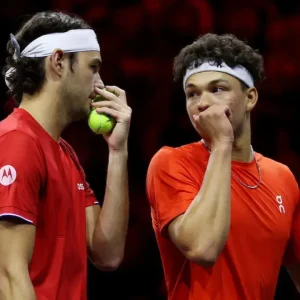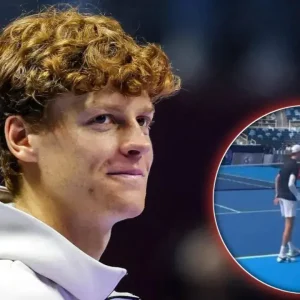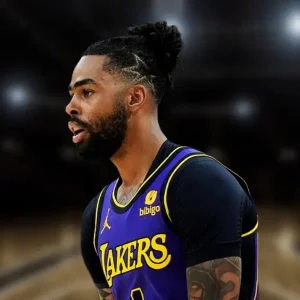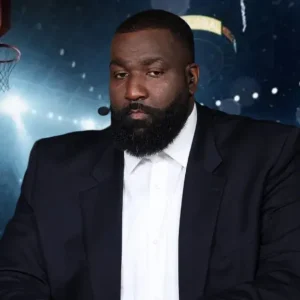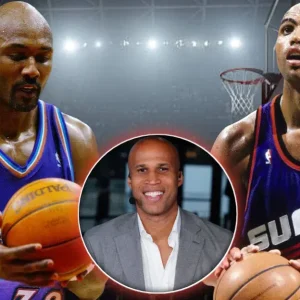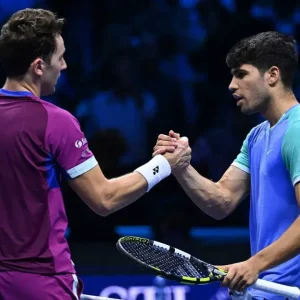In a powerful and deeply personal statement, Russian tennis star Andrey Rublev has offered new insight into the emotional struggles faced by fellow player Alexander Zverev, shedding light on the silent battles that many athletes endure behind the scenes.
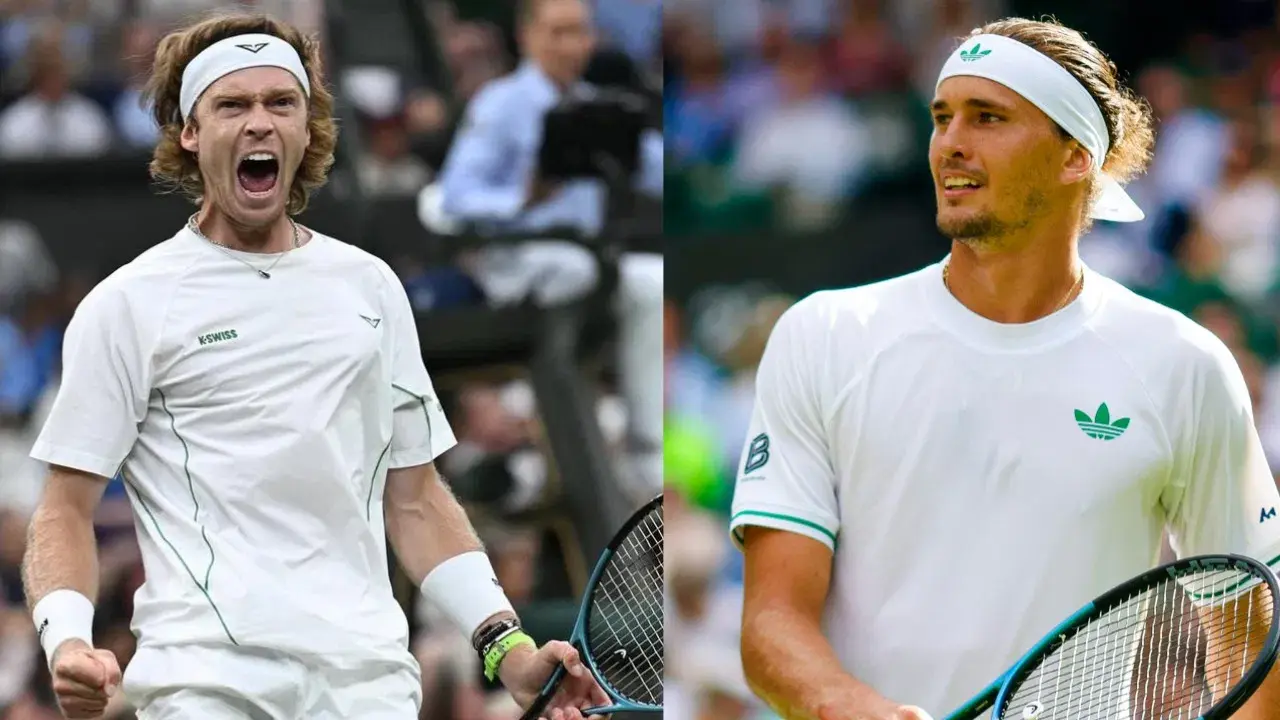
Following Zverev’s surprising early exit from Wimbledon 2025, fans and commentators were taken aback by his unusually subdued demeanor. Now, Rublev—one of Zverev’s closest friends on tour—has spoken up with startling revelations that go far beyond tennis.
Zverev’s Emotional Confession
After his first-round loss, Zverev shocked fans when he admitted:
“I’ve never felt this empty. I’m not talking about losing. It’s something deeper. I feel no joy in what I do.”
The statement sent shockwaves through the tennis world. Known for his fierce competitiveness and public poise, Zverev rarely opens up about his emotions. But this time was different. He hinted that he was finally considering therapy—something he had resisted in the past.
This was a turning point, both for Zverev and for the wider conversation about mental health in elite sports.
Rublev: “It’s Not About Tennis”
In an interview just days later, Rublev went further.
“People think it’s the pressure of tennis, but it’s not. Tennis is just the trigger. The real issues are inside you.”
Rublev explained that high-level sport doesn’t create mental health problems—but it amplifies them. According to him, many athletes, even the most successful ones, carry internal burdens that can erupt under the intense spotlight of competition.
Rublev’s comments were particularly impactful because of his own past. He has been open about struggling with anxiety, depression, and even suicidal thoughts. In early 2025, he credited his recovery to emotional support, conversations with mentors like Marat Safin, and professional therapy.
“I understand what Sascha [Zverev] is feeling. I’ve been there,” Rublev said. “There are times when you’re winning matches, making money, living the dream—and yet inside, you feel completely lost.”
The Pressure Behind the Prestige
Zverev, who just months ago reached the Roland Garros final and remains in the ATP Top 5, is seen as one of the sport’s modern greats. His rise, however, has not come without personal strain.
For years, Zverev has juggled high expectations with personal controversies, including ongoing legal battles and media scrutiny. The pressure has mounted, and Wimbledon may have marked a breaking point.
Rublev says many players suffer in silence:
“On court, we act strong. But many of us are just trying to survive emotionally. Sometimes we smile, but it’s not real. It’s survival mode.”
A Turning Point for Tennis
Rublev’s honesty is part of a broader movement in professional tennis. In recent years, stars like Naomi Osaka, Nick Kyrgios, Iga Swiatek, and Amanda Anisimova have spoken openly about anxiety, burnout, and the need for psychological support.
What sets Rublev and Zverev apart is the rawness of their admissions—especially coming from male players in a sport that often expects stoicism.
Psychologists and coaches are beginning to take notice. The ATP and WTA have expanded mental health resources, offering confidential therapy sessions and peer support systems at major tournaments. But for players like Rublev, the real challenge is cultural: breaking the stigma that seeking help is a weakness.
“We need to normalize it,” Rublev insisted. “You don’t wait until you’re physically injured to get help. Why wait until you’re emotionally broken?”
Zverev’s Next Steps
While Zverev hasn’t confirmed whether he will take a break from the tour, insiders say he is actively exploring therapy and support options. Many hope that by taking time to address his mental health, he will return not only as a better athlete—but as a healthier, more grounded individual.
Fans and fellow players have shown an outpouring of support online. Messages of encouragement have flooded Zverev’s social media, and several players, including Dominic Thiem and Stefanos Tsitsipas, have publicly praised his courage.
Conclusion: The Courage to Be Vulnerable
Rublev’s revelation adds a critical layer to the evolving dialogue around mental health in sport. His friendship with Zverev offers a reminder that even the strongest competitors are still human beings—with emotions, fears, and moments of darkness.
In a sport obsessed with results, titles, and records, Rublev is urging the world to focus on something deeper: the human soul behind the athlete.
As he concluded:
“The strongest thing you can do is ask for help. That’s when the real healing begins.”

